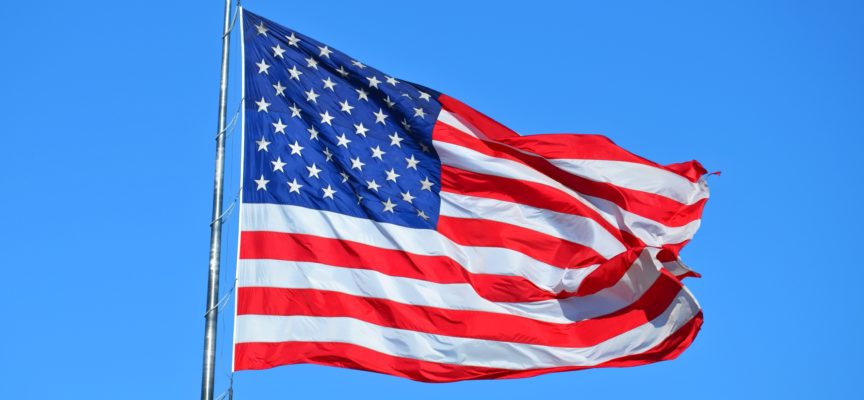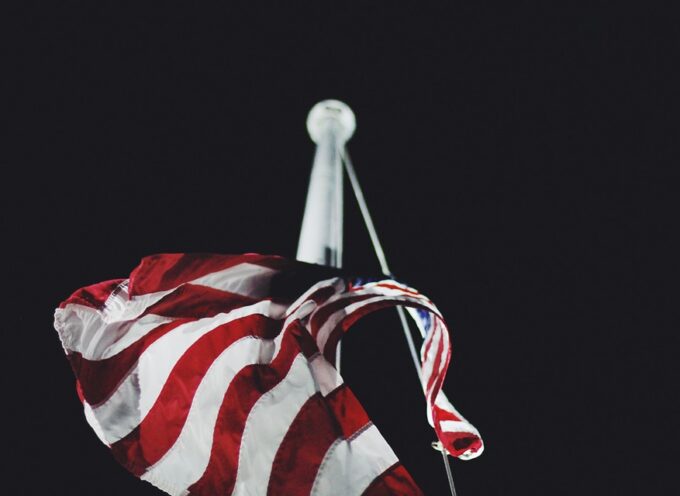The past decade in American politics and public life has felt like the combination of a war, a carnival, and a Hollywood movie.
We’ve experienced not only the injustices pointed out by populists, such as the corruption of Wall Street bankers whose irresponsibility crashed our economy and devastated innumerable ordinary citizens, and the overbearing, self-serving, and out-of-touch rule of elite power-brokers.
We’ve also encountered the rise of toxic forms of public discourse; the increasing disintegration of both major political parties; the inability of Congress to carry out a constructive legislative agenda; the election of politicians who are deeply committed to incivility; the tribalization of American society along the lines of class and race; the disregard for our Constitution shown not only by radical actors on the Left and Right but also by the Supreme Court majority in some of its rulings; the chilling moral callous of Planned Parenthood executives when talking about terminating babies and selling their dismembered body parts. “Et,” as they say, “cetera.”
As a nation, we are unsure how to respond to this circumambient imbecility that characterizes our political moment. Some of us are tempted to be cynical, to think the worst of all political actors or all citizens on the other side of the aisle. Others of us are tempted to withdraw entirely from politics or public debate about hot-button issues. Still others of us are tempted to charge into angry activism, becoming little more than loud-mouthed amateur lobbyists standing in the public square, sweating and yelling at passersby.
But each of these temptations are just that—temptations. And temptations should be resisted. Instead of cynicism, withdrawal, and unhinged anger, we should take the path of convictional civility. To be sure, this is the road less traveled. In moments of social and political turmoil, one of the first casualties is civility. The general sentiment is usually something like this, “Who has time to be civil when so much is at stake? Desperate times call for desperate measures.”
Incivility is not new to American public life. Two centuries ago, Connecticut Rep. Roger Griswold (1762-1812) attacked his colleague Matthew Lyon on the floor of the House, beating him on the head with a cane. Before that, Aaron Burr, the Vice President (let that sink in) shot and killed another statesman, Alexander Hamilton. Incivility ebbs and flows, and while we are once again reaching a high tide, we are not in uncharted waters.
Nor is incivility inherent to populism. Sinful creatures tend to be cruel creatures, so incivility is as common as humanity. Even so, incivility seems especially tempting in our populist moment.
But what the populists leaders, professional agitators, and yellow journalists fail to realize is that civility is one of our chief allies in the fight to make our nation healthy. Incivility accelerates social, cultural and political breakdown, paves the way for authoritarian politics, encourages violence within our borders, and even poses a national security threat.
Thus, in the midst of troubling times such as ours, we should commit ourselves to the cultivation of certain basic habits that slowly but surely make “convictional civility” our modus operandi, and will thus strengthen our democratic republic. As I argued in an article for The Heritage Foundation’s Daily Signal, it is especially important to cultivate three habits, and to those three I will add a fourth:
- We must respect our fellow citizens even when they are our ideological opponents.
In the realm of politics, this means speaking our mind on the issues, but doing so in a way that shows genuine concern, rather than disdain, for the other person.
It means listening to people with whom we disagree, seeking the good of the whole society instead of merely our own tribe, admitting when we are wrong and others are right, and refusing to demean or degrade those with whom we disagree.
Respect for opponents is not, as some assume, a cover for spinelessness. It is the manifestation of courage and self-control. It is conviction coupled with compassion. If we want to see positive change in our country, respect must never be laid on the altar.
- We must work hard to be knowledgeable citizens.
In a day of fake news and misinformation, we must be cautious and discerning as we decide whether to believe a given “take” or interpretation, especially if that “take” dismisses entire classes of people as unworthy of our respect.
We should read widely, think broadly, and make the effort to talk with people who are different from us. If your initial response to any news story is usually, “See? I knew it!” then you’re probably not reading as broadly as you should.
- We must support political leaders who respect the Constitution and engage in democratic politics.
Vote for presidents who have the leadership skills to make things happen without excessive use of executive action. Vote for legislators who understand how to listen to the other side, negotiate, make appropriate concessions, and move a bill through Congress.
- We must seek the common good rather than merely the interest of our tribe.
When Israel was exiled to Babylon where they lived alongside many other competing people groups and tribes, God didn’t call them to seek their own good at the expense of others. Instead he called them to work for the good of Babylon as a whole (Jer 29:5-7). And if we—Americans in a populist era—will seek the common good instead of merely plumping for our own interests, we’ll not only contribute to the healing of our nation but also point to the goodness of our God.
As Americans, we should cultivate these sorts of habits even if our nation’s leaders and commentators do not. If we neglect to form these habits, we will be complicit in our nation’s self-sabotage. We will fan the flames of civil unrest, enable the rise of tribalized and authoritarian politics, and lend an unintentional hand to the growing number of Americans who reject our nation’s founding narrative and reroute its Constitution.
And as American Christians, we have additional incentive: our faith demands it. As I’ve argued in Letters to an American Christian, there is a more excellent way, the way of convictional civility. If you want to be strong, be civil. Seek the common good. Give other people the respect they deserve. Refuse to give in to the dark passions of our era. Show the strength that few people possess—the power of self-control. In the words of the apostles, we must honor people (1 Pet. 2:17) and live peaceably with them (Rom 12:18) even when we find ourselves at odds politically.
America does find itself in convulsions right now. But the battle is not yet lost and the hour is not yet too late. If we cultivate the habits of democracy and pair them with Christian virtue, we will join the ranks of those who wish for our children—and our children’s children—to live in a healthy democratic republic. We will pass on a nation greater than the one we inherited. We make America great when we treat it like a democratic republic rather than a free-for-all tribal war.
Subscribe
Never miss a post! Have all new posts delivered straight to your inbox.







